Agie
Well-Known Member
- Joined
- Aug 19, 2016
- Messages
- 1,804
- Reaction score
- 902
- Location
- Perth, Australia
- Country
- Australia
- Dash Cam
- 70mai S500, A229 Pro, VS1, Nexus 4 Pro, S1 Pro, A119 v3v2v1
Out of curiosity, ran some more tests this morning regarding microSD cards. Have the Viofo 128GB A2 V30, Lexar 633x 256GB A1 V30, and Samsung EVO Plus 256GB A2 V30. All testing was conducted using the SanDisk SDDR-B531 (official quote of transfer speeds up to 170MB/sec)
Viofo came out on top with consistent and strong read/write speeds, and was interesting to see that despite the A2 V30 branding of the Samsung card, it still performed quite poorly in terms of write speeds, even if it was consistent. The Lexar was all over the place when it came to write speeds.
IOPS were strong for the Viofo also, while the others performed a couple of rungs down the ladder. It appears that the Viofo-branded microSDXC card is quite a strong performer
Purchase link for VIOFO card here: https://viofo.com/accessories/136-v...pter-support-ultra-hd-4k-video-recording.html
@viofo @VIOFO-Support
UPDATE 21st October 2023:
---------------------------------------------
Bit the bullet and conducted some further testing today, with the recently announced Samsung PRO Ultimate microSDXC card line. Acquired the 128GB A2 V30 variety, and performed the usual tests above and also with BlackMagicDesign Disk Speed Test.
Results shown below paint a similar picture as to what was found with the previous cards comparison. The claims provided by Samsung that it can read up to 200MB/sec and write up to 130MB/sec - these are obviously conducted with Samsung's own microSD-USB-A card reader. And enabled using DDR technology (by SanDisk but which other manufacturers such as Lexar, Kingston and Samsung have used) that serves as a halfway point towards the claimed theoretical speeds of UHS-I and UHS-II.
Unfortunately in real-world tests is where this all comes to light, so despite performing better than their own EVO Plus line, the PRO Ultimate is in reality not much different from that line in terms of speed only. Core specifications with regards to durability in storage and operating conditions remains the same between the two lines, and hence, the Viofo line.
IOPS are much stronger in the Viofo-branded memory cards, that's one aspect that I've found as a constant in my testing.

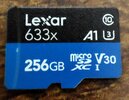
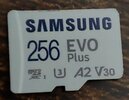
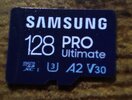


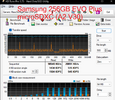
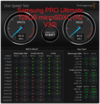

Viofo came out on top with consistent and strong read/write speeds, and was interesting to see that despite the A2 V30 branding of the Samsung card, it still performed quite poorly in terms of write speeds, even if it was consistent. The Lexar was all over the place when it came to write speeds.
IOPS were strong for the Viofo also, while the others performed a couple of rungs down the ladder. It appears that the Viofo-branded microSDXC card is quite a strong performer
Purchase link for VIOFO card here: https://viofo.com/accessories/136-v...pter-support-ultra-hd-4k-video-recording.html
@viofo @VIOFO-Support
UPDATE 21st October 2023:
---------------------------------------------
Bit the bullet and conducted some further testing today, with the recently announced Samsung PRO Ultimate microSDXC card line. Acquired the 128GB A2 V30 variety, and performed the usual tests above and also with BlackMagicDesign Disk Speed Test.
Results shown below paint a similar picture as to what was found with the previous cards comparison. The claims provided by Samsung that it can read up to 200MB/sec and write up to 130MB/sec - these are obviously conducted with Samsung's own microSD-USB-A card reader. And enabled using DDR technology (by SanDisk but which other manufacturers such as Lexar, Kingston and Samsung have used) that serves as a halfway point towards the claimed theoretical speeds of UHS-I and UHS-II.
Unfortunately in real-world tests is where this all comes to light, so despite performing better than their own EVO Plus line, the PRO Ultimate is in reality not much different from that line in terms of speed only. Core specifications with regards to durability in storage and operating conditions remains the same between the two lines, and hence, the Viofo line.
IOPS are much stronger in the Viofo-branded memory cards, that's one aspect that I've found as a constant in my testing.









Last edited:
